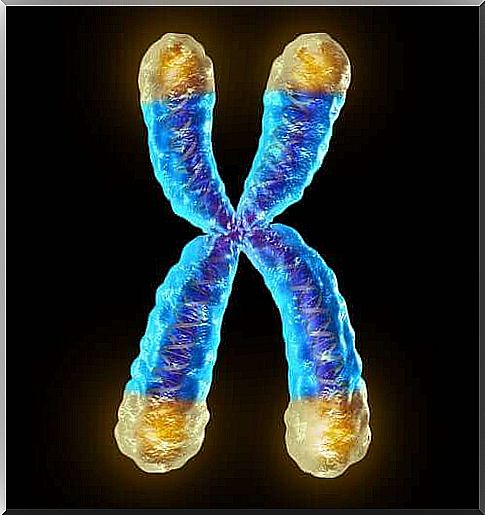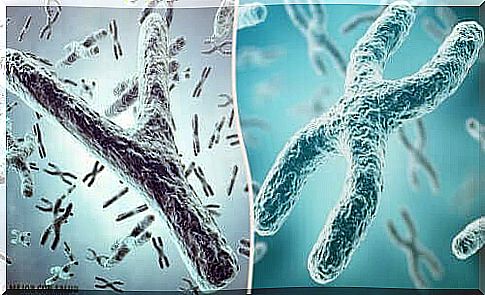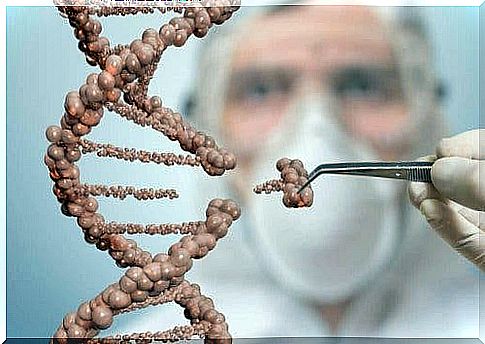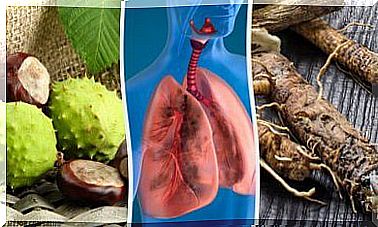What Telomeres Are: Chromosomes, Aging And Disease

Telomeres are the region of repeating nucleotide sequences at each end of a chromosome and are one of the most fascinating topics in current research. We believe they contain the answer to complex and enigmatic processes such as aging, cancer and death.
During the 1930s , Herman Joseph Muller and Barbara McClintock discovered telomeres. In fact, they received a Nobel Prize for their work. In 2009, researchers Elizabeth H. Blackburn, Carol W. Greider and Jack W. Szostak received another Nobel Prize in physiology or medicine for their research on the same subject.
Some researchers have previously thought that cells could divide indefinitely. Later, however, they found that the cells can only divide a certain number of times before they die. The length of the telomeres determines how fast the cells will die.
What are telomeres?
As we mentioned above, telomeres are the ends of chromosomes. The word comes from Greek, and literally means “the end” . It is in a way the small plastic part at the end of your shoelaces.
Telomeres are the protective shields of the DNA in human cells. Thanks to them, chromosomes can largely maintain a stable structure. This stability then allows the cells to divide normally.
The ends of chromosomes play an important role in many functions. For example, the cells do not stick to each other thanks to them, which is very important for life itself. In addition, telomeres also allow us to determine the rate of aging of an organism.

To understand what telomeres are
The cells constantly divide to regenerate tissues and organs in the body. Each of these divisions reduces the length of telomeres slightly, so they gradually become shorter . Eventually, they become so small that they are no longer able to complete their function of protecting the DNA.
They reach this point because the cells have grown old and stopped dividing. The length of telomeres is measured in a unit called kilobase. They have an average length of 11 kilobases at birth and the number is reduced to around 4 as you get older.
The shortening of telomeres, and hence their inability to protect the DNA, appears to be the cause of aging and the emergence of age-related diseases, including:
- Cardiovascular disease
- Neurodegenerative diseases
- Infertility
- Diabetes
- Cancer
Telomerase and youthfulness
It is inevitable that the telomeres are shortened with each new cell division. However, an enzyme called telomerase moderates this process. Thus, it is able to regenerate the length of these chromosome components to some extent.
Stem cells are a form of telomerase guard. However, the production of this regenerating enzyme decreases with age and increases the frequency of cell failure. If the production of telomerase in theory never stopped, we could remain forever young.
There is only one problem. Cancer cells have very long telomeres and produce a large amount of telomerase. These also do not get older and divide violently. The conclusion is therefore that a low production of telomerase makes you older, but a high production increases the risk of cancer.
With this in mind, one of the problems for science is to maintain the generation of telomerase without causing cancer. They have therefore performed experiments with mice that give encouraging results. Let us not rule out the possibility that they will be able to achieve their goal of manipulating the telomerase in the way they want in the near future.

The impact habits have
A number of studies show that certain habits shorten telomeres. As you can probably guess, they are the most harmful:
- Excessive consumption of sugary drinks
- Smoking
- A sedentary lifestyle
- Not enough rest
- Contamination
They have also found that chronic stress shortens telomeres and that cortisol, the stress hormone, reduces production. Food data are incomplete, but there is a relationship between longer telomeres and the intake of vegetables, fruits, omega-3s and coffee.
Researchers have also observed that infants who are exclusively breastfed during the first 4 to 6 weeks of life have longer telomeres at 4 years of age. At the same time, shorter telomeres appear to be associated with clinical depression.









